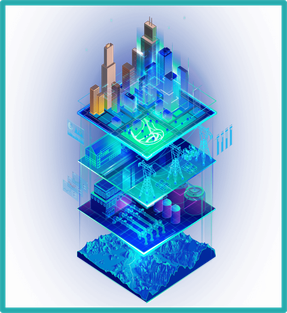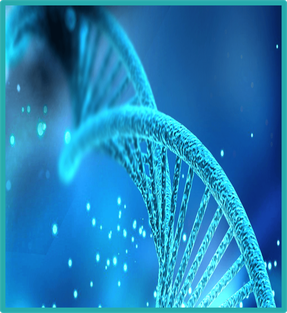Education
Members of the department are teaching at bachelor and master level of various programs offered by the faculty of bioscience engineering (MSc in bioscience engineering, MSc in bioscience engineering technology, MSc in bioinformatics and several international programs). Our courses main objective is to foster and develop engineering thinking and problem-solving skills with students.
Our teaching is dIvided into 5 main streams that can be linked to our research lines. Our applied research fuels the context and examples in which we present the mathematical theory in our courses.
Mathematics
The mathematics courses organized by the department thoroughly introduce engineering students to the essentials of calculus, linear algebra and probability theory. The theory is introduced with the necessary mathematical rigour and complemented with practical (computer-supported) exercises.
Bachelor courses:
Probabilistic models, Analysis: functions of one variable, Analysis: functions of several variables, Mathematics I, Mathematics II, Calculus I, Linear Algebra and Calculus II and Linear Algebra
Contact: Elien Van de Walle, An Schelfaut, Jan Baetens and Willem Waegeman
Programming
Scientists and engineers often face scientific problems that require an advanced and/or automated processing of information, or problems that require extensive computations. In our introductory programming courses organized by the department, students learn the principles of (scientific) programming and learn to apply these principles to solve problems in a time-efficient and automated manner.
Bachelor courses:
Probabilistic models, Analysis: functions of one variable, Analysis: functions of several variables, Mathematics I, Mathematics II, Calculus I, Linear Algebra and Calculus II and Linear Algebra
Contact: Demir Ali Köse, An Schelfaut and Jan Verwaeren
Data Analysis
This line entails a comprehensive introduction to the fundamentals of data analysis techniques and their applications in the life science domain. We introduce the most common techniques in statistics, machine learning and visualisation that are relevant for the next generation biosience engineers. The main language that we use for this is R.
Bachelor courses:
Probability and Statistics, Statistical Data Analysis, Biometries, Data science, Introduction to Data science
Master courses:
Machine learning for life sciences, Experimental Design, Statistical Topics in Food Technology
Contact: Joris Meys and Stijn Luca
Mathematical Modelling
In the modelling courses, the students are introduced to the general mathematics that underly dynamical modelling as well as domain-specific techniques (e.g. models for resource recovery). Besides the modelling framework, the computational aspects are treated as well using Python as main language. .
Bachelor courses:
Differential Equations, Modelling and Simulation of Biosystems
Master courses:
Spatio-temporal Models, Selected Topics in Mathematical Optimization, Introduction to Mathematical Modelling, Process Control, Digitalisation for Resource Recovery, Modelling and Simulation with Partial Differential Equations in Practice
Contact: Gauthier Vanhaelewyn and Paul Van Liedekerke
Bioinformatics
In the courses of bioinformatics, the students get acquainted with the full data-analytical pipeleines to (pre)process high throughput omics data. This includes the experimental protocols together with how to process and statistically analyze such data.
Master courses:
Genome Analysis, Applied High-throughput Analysis
Contact: Tim De Meyer




